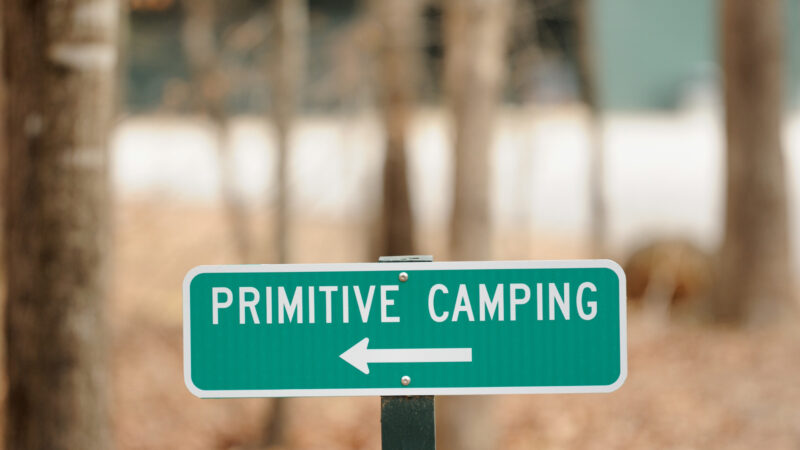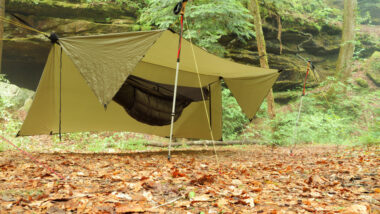Table of Contents Show
While fifth wheels, conversion vans, and travel trailers come loaded with many luxuries, some feel renewed when primitive camping. Getting to escape the hustle and bustle of life and disconnect from technology is something we all need to do from time to time.
However, if you feel frustrated with crowded and noisy campgrounds, consider primitive camping. But what is primitive camping, and how do you do it legally?
Today, we’re sharing everything you need to know about this basic camping style so you can stay on the right side of the law and have a great time.
What Is Primitive Camping?
Primitive camping, or backcountry camping, is where you rely on your survival skills and spend time in remote sections of the wilderness. You’ll typically hike to a specific area and find a spot to set up a campsite.
In this camping style, you won’t have established campsites or reservations. However, you may need to purchase or acquire a permit to camp in some areas.
Since you’ll likely need to hike in, you’ll only have access to items you can carry. This means you must haul your shelter, food, water, and other supplies to wherever you’ll set up.
If you’re okay with saying goodbye to electrical outlets, running water, and restroom facilities, primitive camping can be a rewarding experience.
What Is the Difference Between Camping and Primitive Camping?
Camping is typically done in an established campground. This means you’ll likely have power, water, and restroom facilities available.
Even if a campground labels a campsite “primitive,” it typically means it has no access to water or power at the site. However, it’ll often have water and restroom facilities accessible for campers.
The primitive camping we’re referring to takes place in the wilderness. You could camp several miles from the nearest toilet or shower house. Thus, you’ll need to carry any gear or supplies you’ll need. Those who enjoy primitive camping should grow their survival skills to have a smooth primitive camping experience.
Is Primitive Camping Legal?
Primitive camping is legal in many places but not everywhere. You need to know exactly where and when you can legally camp.
Many national parks allow it and refer to primitive camping as “backcountry camping” or “dispersed camping.” However, they may restrict this type of camping to specific sections of the park.
Additionally, many national forests and recreation areas allow dispersed camping anywhere within the boundaries. You must follow certain restrictions about where you create campsites based on roads and water sources, but generally, it’s a legal camping style.
Ensure you get the necessary permits and verify with local authorities any specific legalities for the area. And remember to leave no trace and pack out what you bring in.
Benefits of Primitive Camping
There are a few benefits of primitive camping that make it very appealing to some. Let’s look at a few reasons you might want to consider this camping style.
No Need for Reservations
Are you tired of fighting for a reservation in your favorite campground? And it seems campground reservations aren’t getting any cheaper.
Luckily, primitive camping doesn’t require reservations and gives you more freedom when picking your campsite. You can enjoy some pretty epic views and locations.
While most places don’t require reservations, you may need to acquire a permit. Costs and availability of permits vary based on the location. It’s best to check with the specific park’s policies regarding primitive or backcountry camping permits.
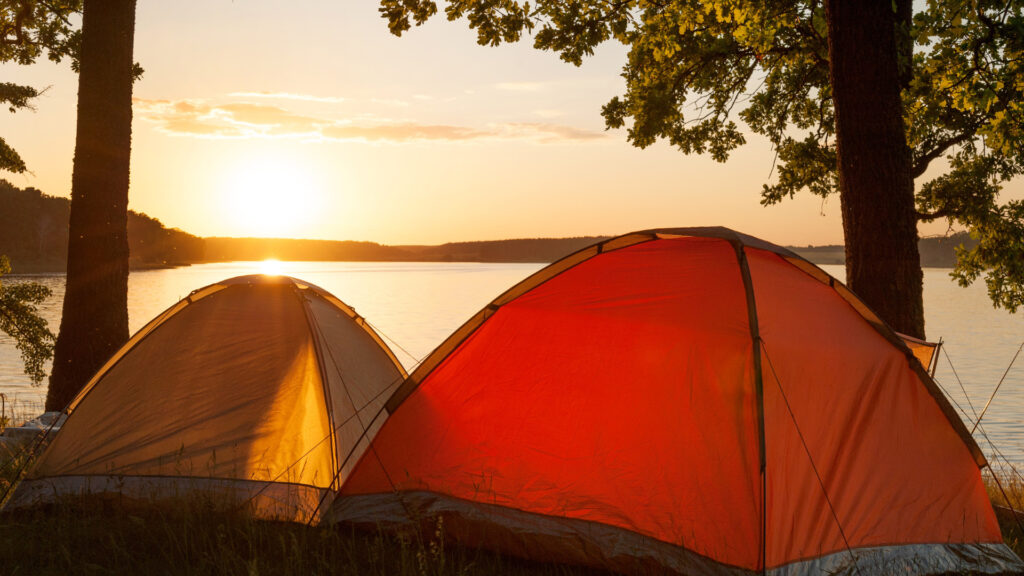
Enjoy Peace and Quiet
Staying in a crowded campground means listening to your neighbor’s favorite 70s rock playlist until quiet hours start. This can become incredibly frustrating, especially if your goal is to enjoy the sounds of nature while camping.
Luckily, primitive camping can allow you to go deep into the wilderness, away from electricity and noisy speakers. You can listen to birds singing during the day and crickets chirping at night. The quietness in some of these areas can feel almost deafening to ears accustomed to constant noise.
Explore Remote Areas
Some of the most fun areas to explore are remote areas that are hard to reach. Accessing these locations is only one part of the challenge.
Getting to explore the wilderness without hoards of others adds to the experience. You won’t have to worry about influencers ruining your experience by constantly taking selfies for their Instagram or trying to capture the experience in hopes of going viral.
Exploring these remote areas can be incredibly rewarding and addicting. You might enjoy the entire experience so much that you swear off camping in established campgrounds ever again. You may look to grow your survival skills to spend as long as possible in the wilderness.
Disadvantages of Primitive Camping
While primitive camping has its benefits, there are also some cons that you need to consider. Going into a situation without considering the disadvantages can be extremely dangerous.
Requires Self-Reliance
Primitive camping requires participants to have a certain level of basic survival skills. You’ll need to know how to start a fire, purify water, and protect yourself from potential predators.
And you must have basic first-aid knowledge to keep you and anyone else camping with you safe.
Primitive camping isn’t nearly as easy as standard camping. When things go wrong, it can become dire quickly. You must be capable of caring for your basic needs. If not, you could be in for a disastrous camping experience.
Keep in Mind: Before you go camping, be prepared with a Campfire Starter Kit That Actually Works!
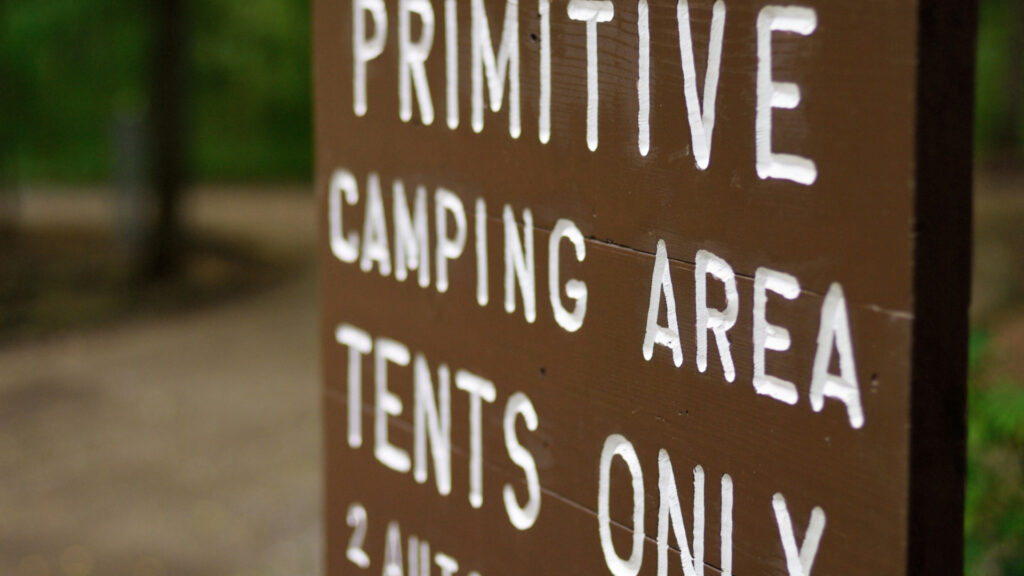
Less Luxurious
If you want a glamping experience, primitive camping isn’t it. The only items you’ll have are the items you carry with you. While you may have a sleeping pad, it won’t be nearly as comfortable as a thick foam mattress.
What you forfeit in luxury, you gain in other areas. However, some people value their luxury enough that not having some amenities ruins the experience. If you spend the entire time complaining or missing toilets or running water, it may not be for you.
Increased Danger
Primitive camping takes place in remote sections of national parks and other public lands. This can drastically increase the danger campers experience during their excursions. If something were to go wrong, it could be hours before help could arrive.
Cell phone coverage may be severely limited, and your ability to communicate with rangers could make the difference between life and death in a serious situation.
You never know what can happen during a primitive camping experience. Something as simple as rolling your ankle or falling can become dire.
Additionally, some areas have dangerous animals. You’ll have to take care to avoid getting bitten or attacked by one of these animals.
Keep in Mind: You never know when you’ll encounter an animal while camping. So are Bear Proof Tents an option to help protect yourself?
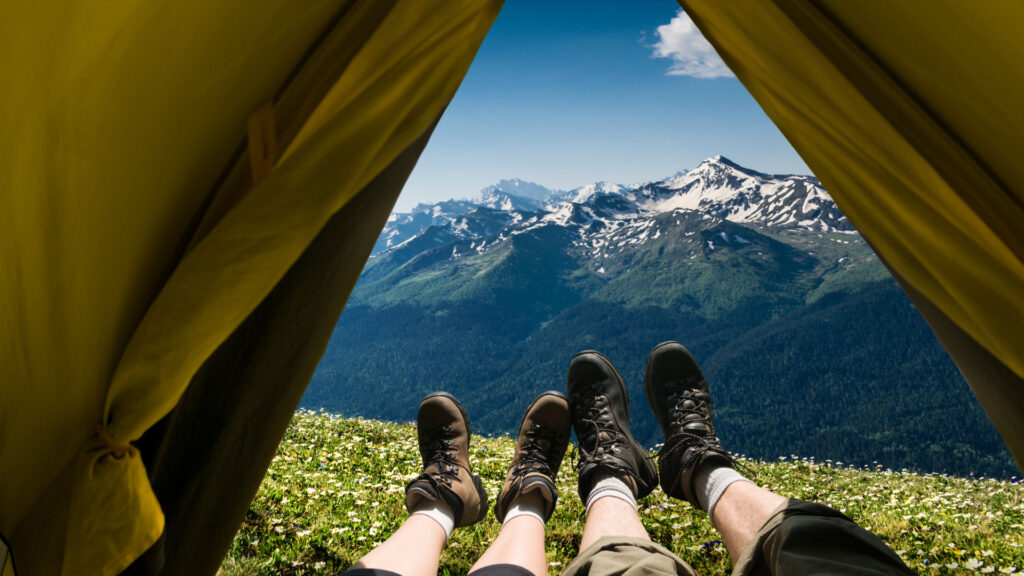
How to Find Primitive Camping Spots
The best way to find primitive camping spots is to use a resource like Campendium or iOverlander. These resources allow you to apply filters and narrow down the results based on your specific needs.
Because these websites and apps have huge databases, you can find some of the best primitive camping spots in the country.
Another way to find primitive camping spots is to contact the local agency that manages the public lands. Whether it’s a national park, forest, or recreation area, an agency oversees them.
They want you to camp legally and safely as much as you do. Reach out to the appropriate authority for the area you’d like to go and ask where they recommend camping.
Get Close to Nature by Primitive Camping
Primitive camping can provide you with the opportunity to connect with nature in a way that other types of camping can’t. You’ll experience the sounds of nature and its natural beauty unlike ever before.
If you’re tired of crowded campgrounds or looking to change things up, give primitive camping a try. It might surprise you how much you enjoy it! What are you waiting for?




